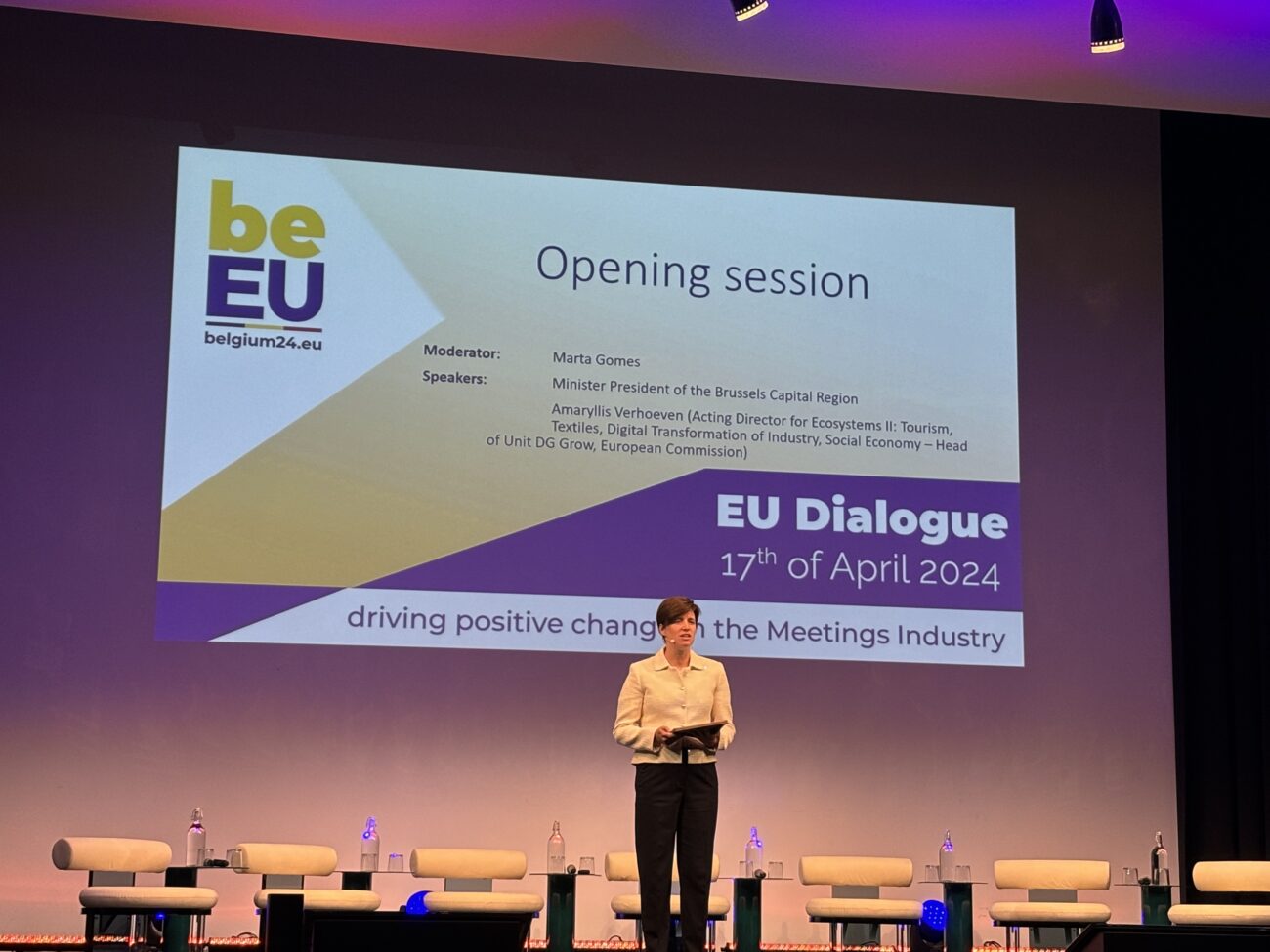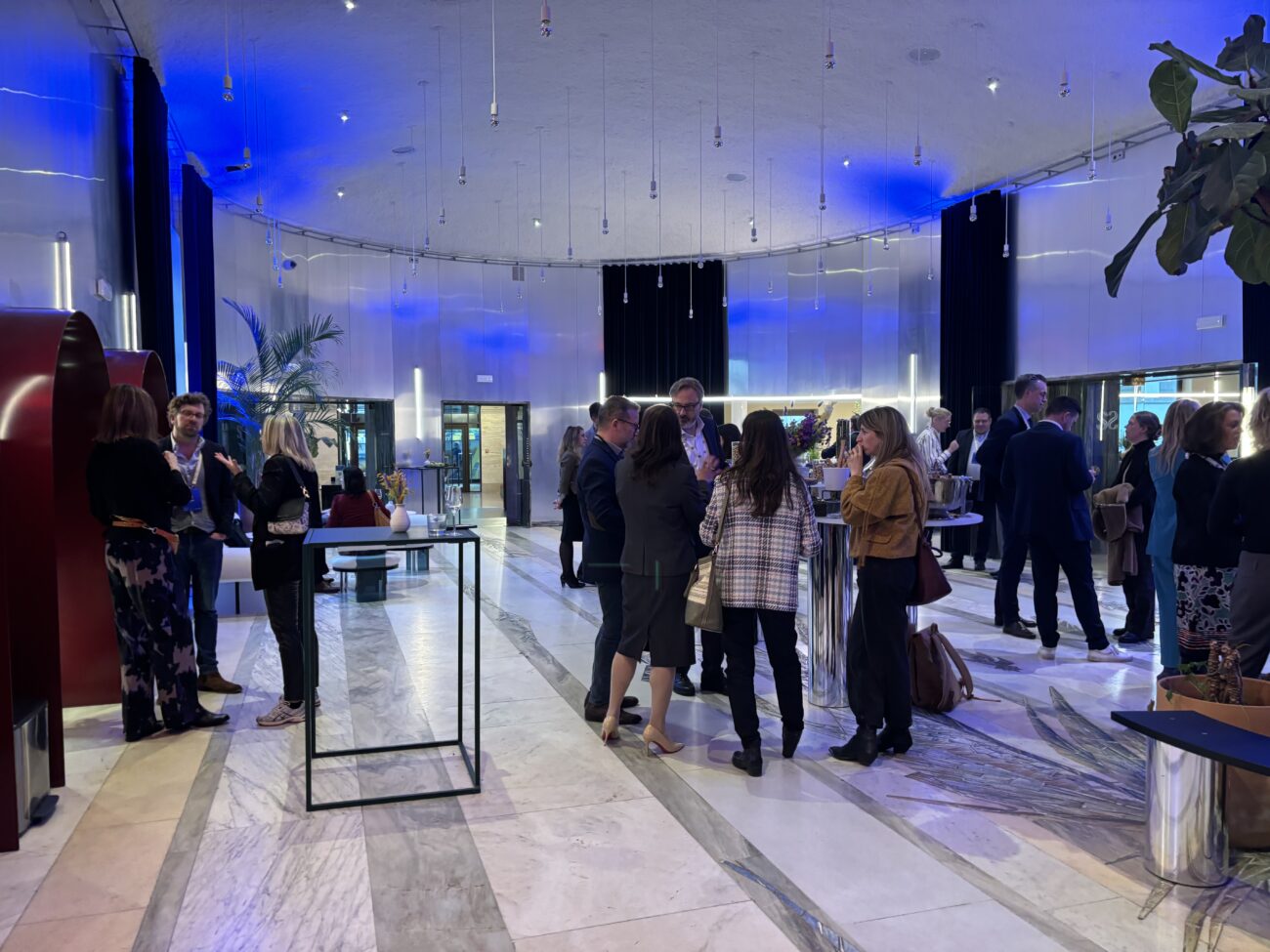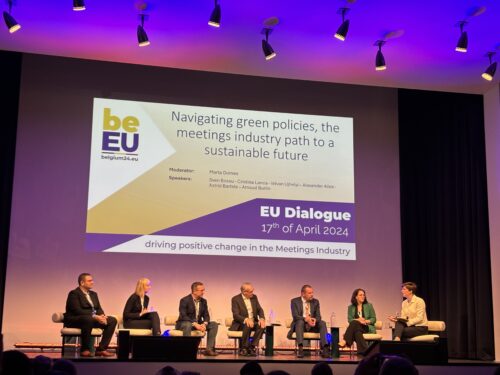During the one-day meeting, over 180 industry professionals and European policymakers from 15 countries got together to discuss the sector’s strategic value and its capacity to drive economic and societal growth. The event featured insights from 52 expert speakers from both worlds and facilitated powerful discussions aimed at ensuring a more sustainable and impactful future for Europe and beyond.
In his opening speech, Minister President of the Brussels Capital Region Rudi Vervoort recognised the value of meetings for the future of the EU: “Such high-level gatherings not only boost revenues for businesses across the continent but also offer academic and scientific development thanks to the exchange of ideas circulating in a room full of experts.”
Marta Gomes, President of ICCA and Deputy Executive Director of VIPARIS, moderated the broad-ranging discussions, addressing everything from the operational challenges of the meetings industry to its strategic role in economic growth and innovation. From accelerating sustainable mobility initiatives and training and DEI strategies to embracing green and digital transition and the importance of statistics and data, the bottom line was clear: Europe is a leading destination worldwide and business events are a big part of this success.


“Recovery and advancement can be accelerated through continuous collaboration between the meetings industry and EU policy makers in order to create a common agenda which will continue to offer Europe its competitive edge.”
Visitor Economy Rather Than Just ‘Tourism’
In light of the above words by Patrick Bontinck, CEO at visit.brussels, when talking about the overall positive impact of the meetings industry, the dialogue continued around topics like accelerating sustainable mobility initiatives. Frances van Klaveren, Community Engagement Manager at ICCA, had Pierpaolo Settembri (Head of Unit Coordination and planning, DG MOVE, European Commission)’s ear when talking about the priority our industry gives to sustainable mobility during an event.
“There are many opportunities for collaboration here,” said Settembri. “The EU Green Deal is putting in place necessary preconditions, like upgraded infrastructure, bike lanes and adjusting fares, in order for passengers to make a smooth transition to decarbonised mobility. It is important for the meetings industry to continue raising awareness among delegates of the sustainable options offered when getting to and getting around a destination.”
Tackling a different challenge, that of statistics and data, the consensus was that the meetings industry is underrepresented. There is a multitude of data and studies produced by the sector itself and a striking lack of representation in any official statistics. Sharing information with the right bodies, as Javier Ruescas (Senior Programme Officer, UN Tourism) pointed out, on the delegates purpose for travel, the time and region of travel, can help establish and overcome challenges in the tourism sector. “In order to be visible to and recognised by governments and policymakers on all levels, it needs a clear presence with some basic data in official national, European and global statistics”, says David Boon, UFI European Chapter Chair for EEIA.
In a heated discussion around embracing green and digital transition for a more resilient meetings industry, Marie-Hélène Pradines (Head of Unit Tourism & Textiles, DG Internal Market, Industry, Entrepreneurship & SMEs at European Commission) presented the Commision’s action plan for the recovery and the general transition of the sector.
She expressed a clear opening for the meetings industry to become embedded in the project since it can offer immediate implementation of this initiative. Examples to reinforce this view were shared by Alessandra Priante, President of ENIT (Italian National Tourist Board), saying that “the meetings industry can help give smaller unknown destinations a greener tourism, as informed delegates travel there for their events. It can also help spread tourism throughout the year and attract non-EU citizens to meet new regions and promote diversity.”
What’s more, business events are one of the few sectors of tourism trying to create a harmonised approach on sustainability across stakeholders. During his presentation, Alex Alles, Executive Director of JMIC, showcased the Net Zero Carbon Events (NZCE) initiative (where Boardroom is a paying partner), proving that our industry is proactive when it comes to sustainable practices.
“There is no doubt that tourism and the meetings sector go hand in hand as vital contributors to sustainable development goals. We share many goals with the European Union, and we need to speak with one voice while still embracing all components and illustrating the diversity and relevance of our sector. Continuing this dialogue is key to ensuring Europe’s competitiveness, resilience and sustainability.”
Petra Stušek, President of City Destinations Alliance
